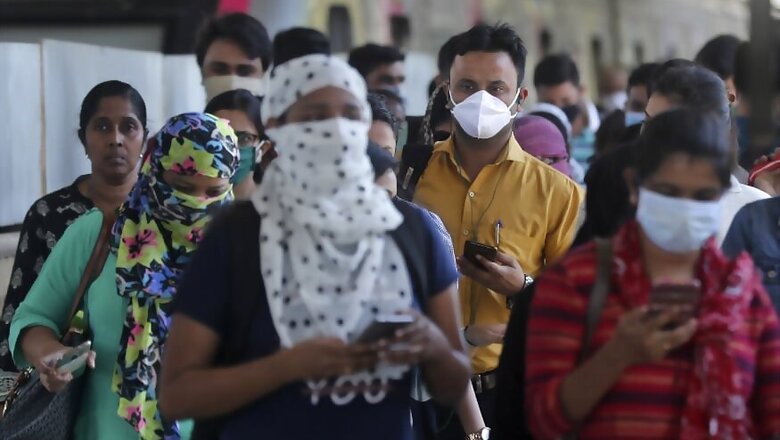
views
New Delhi: As part of the revised of the guidelines issued by the Ministry of Home Affairs on Wednesday, wearing of face masks has been made mandatory in all public and workplaces while spitting in public places will be an offence punishable with fine.
The Government of India Information and Broadcasting, in a press release dated April 15, has published a set of revised consolidated guidelines of the Ministry of Home Affairs detailing what is allowed and what is not.
The revised rules have been released after Prime Minister Narendra Modi on April 14 extended the lockdown to contain the spread of coronavirus, until May 3, on the day that the initial 21-day lockdown was slated to be lifted.
In a release, MHA said the National Directives will be enforced by the district magistrate through fines and penal action as per the Disaster Management Act 2005.
The document details all the dos and don'ts during the lockdown period including explicit guidelines on social distancing to maintain in offices, workplace, factories and establishments.
Social distancing guidelines include keeping an hour's gap between two shifts and staggering lunch breaks of staff.
There have also been some relaxations for self-employed such as electricians, plumbers, motor mechanics and carpenters. To ensure no loss of income they will be allowed to operate from April 20, but only in non-containment zones, as demarcated by the various states and Union territories.
Travel by air, rail and road, operation of educational and training institutions, operation of industrial and commercial activities, and operation of hospitality services are among activities that have been strictly prohibited.
Adding to the list of exceptions from the last time, the government said all farming operations, including procurement of agricultural products and agriculture marketing through notified mandis, will be permitted. The supply chain of milk, milk products, poultry and live-stock farming and tea, coffee and rubber plantations will also resume.
Earlier, only drugs & pharmaceuticals and food processing units were allowed to operate, but this has now been expanded to industries operating in rural areas, Special Economic Zones (SEZs) and Export Oriented Units (EoUs), industrial estates and industrial townships.




















Comments
0 comment